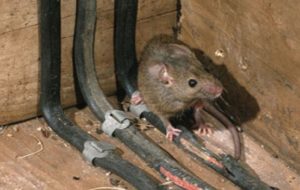As the coronavirus pandemic continues its destructive march, decimating economies and claiming hundreds of thousands of lives, rats and mice are being forced into the open as they search for food.
Why are Rodents Changing Behaviour?
One of rodents’ main food supplies is being impacted as restaurants shut up shop and reduce their trade. As they seek out new food sources, rats, who are ordinarily nocturnal, have been photographed in daylight and ripping into plastic bags.
In May the Centers for Disease Control and Prevention warned that the rodents may turn “aggressive” as they are forced to quickly adapt. They even predicted an increase in service call outs as they cross paths with humans.
As rats and mice are known to carry 35 diseases that can be passed on to both pets and humans, this is not great. In addition to spreading disease, they can also carry disease-ridden ticks, fleas and mites, cause major structural damage to buildings with their sharp teeth, and contaminate food with their droppings. Again, not great.
We understand pest control may not be at the top of your priorities during a pandemic, but we encourage everyone to start keeping an eye out for signs of rodent infestations as getting rid of the pests can be time-consuming and expensive.

Our friends at Dubbo pest control company Pest Alert, have given us a list of signs to look out for:
- Scratching, gnawing and squeaking in walls.
- Heightened excitement in pets, such as dogs and cats.
- Gnawing damage.
- Droppings 12 – 18 mm long.
- Borrow holes around buildings.
- Debris such as empty snail shells, nibbled fruits or bones left in secluded spots.
- Rub or tail marks on beams.
- Foot prints.
If any of these signs hit a little close to home, it’s best to call pest control straight up. They have the means to assess the level of infestation and develop an appropriate response.
The post Rats and Mice are changing their behaviour during COVID-19 appeared first on Glendale Symphony Pest Control.